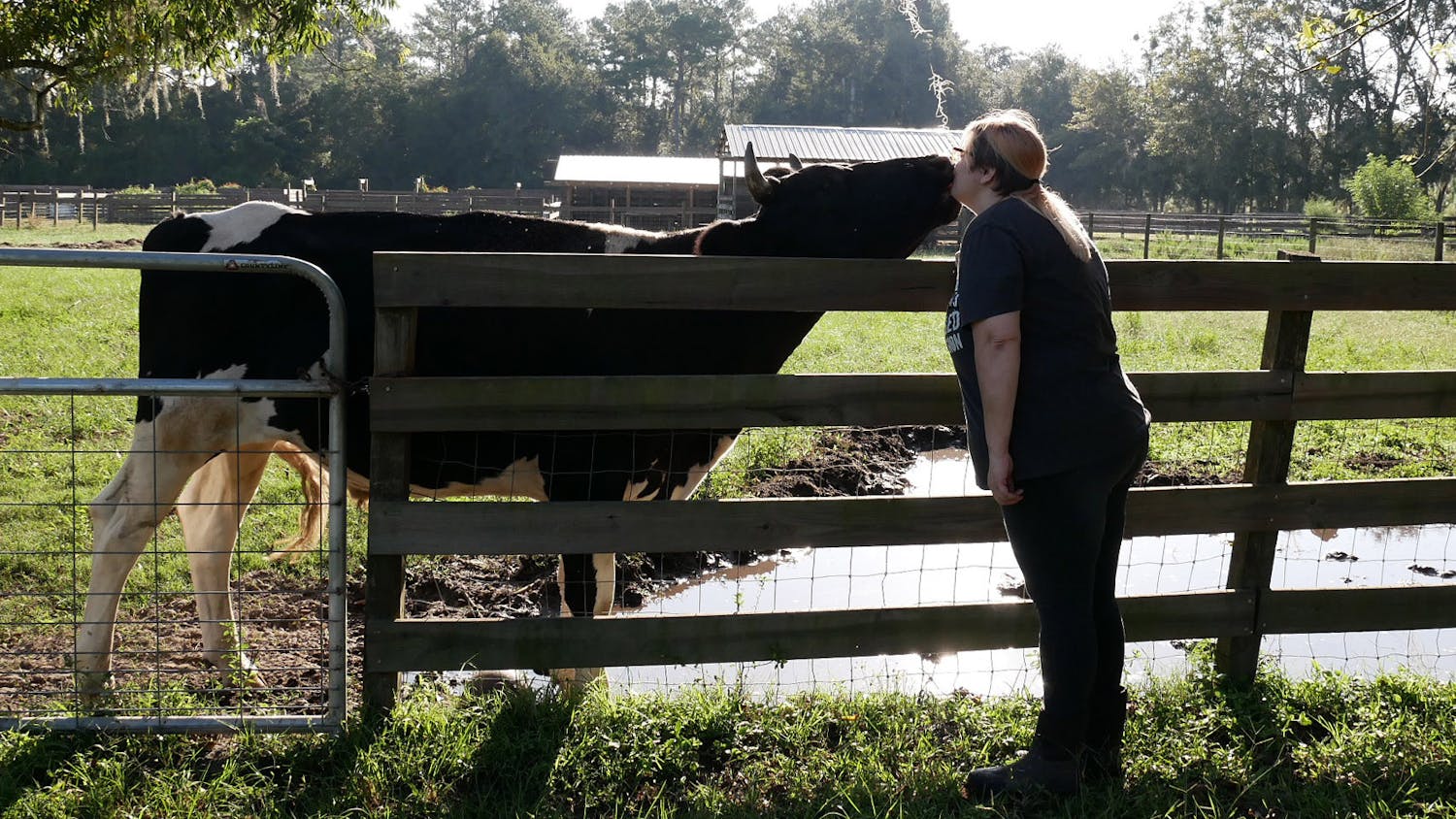As a sophomore in high school, I educated myself on issues of animal cruelty and meat production in the U.S. After thorough research, I made the decision to change my lifestyle. I adopted a vegetarian diet. I maintained it for the last five years, and fully transitioned to a vegan diet about six months ago. I don’t walk around with a soapbox in hand, ready and willing to talk about my views on animal maltreatment or government-regulated factory farming. I often refrain from even using words like “vegetarian” or “vegan” because they elicit baffled and confused responses that I don’t often have the time or energy to deal with. Clearly, I have strong opinions that motivated me to make a lifestyle change, but I don’t often engage others in conversation about animal rights unless I’m asked a direct question.
My approach to animal advocacy is fairly contradictory to my usual combative approach to issues of morality and justice. Of course, I do feel that ethical treatment of animals is a serious problem that needs to be addressed, but discrimination and the inhuman treatment of our citizens must be addressed first. That being said, my discomfort in openly discussing issues of animal rights lies in the fear of being wrongfully aligned. When many people hear “vegan,” there’s a predominant stereotype of angry radicalism, aggressive ideology and, of course, PETA.
PETA, or People for the Ethical Treatment of Animals, is the predominant group making its voice heard for the cause of animal rights. Or so we are led to believe. PETA pushes an agenda of single-issue politics, often exploiting other groups in order to express its viewpoint. Any vegan or vegetarian who is passionate about animal rights should look to PETA’s objectification of women and use of radical, triggering demonstrations as more than enough reason to discredit the organization entirely.
PETA continually places the importance of animal rights over all else, exploiting humans in the process. “Sex sells” is the domineering marketing tool for the “I’d Rather Go Naked Than Wear Fur” campaign, which capitalizes on sexualized women. PETA has used images of naked, bound, beaten, bloodied and dead women to condemn animal abuse. It is hypocritical and misogynistic to be horrified by slaughterhouses, yet accepting of women’s bodies used as props to promote a cause. In its attempt to humanize animals and garner sympathy, PETA dehumanizes women, perpetuates sexism and cheapens its cause.
PETA has infamously demonstrated while dressed as members of the Ku Klux Klan, handed bloodied “Unhappy Meals” to children outside of McDonald’s restaurants and used Nazi imagery to compare the plight of animals to that of victims of genocide. These tactics are meant to be shocking and to make the viewer uncomfortable — which can be an effective tactic, but not at the expense of children, women and victimized groups.
PETA often seems concerned with headlines and sensationalized press more so than with helping animals. Documented statistics of animals coming into PETA shelters prove the organization euthanizes about 85 percent of its animals on average.
This is the group that presents itself as the loudest and most organized voice for the cause of veganism. People immediately associate vegans with the organization, which I’ve heard not-so-jokingly referred to as an outright hate group. It’s unsurprising that vegans are clumped together as angry, single-issue protestors with misguided priorities — because that’s exactly the image our “representatives” are crafting for us. I generally find that people supporting compassionate causes use compassionate tactics to earn support. PETA, being the antithesis of a compassionate cause, must, therefore, use the most uncompassionate tactics.
With enough vegans and vegetarians speaking out against PETA, we can create space for worthwhile, productive animal rights groups to send a better message. Don’t let PETA’s cartoon stickers fool you.
Amy Coker is a UF English junior. Her column appears on Wednesdays.
[A version of this story ran on page 7 on 3/18/2015 under the headline “PETA: not a voice for vegans”]





